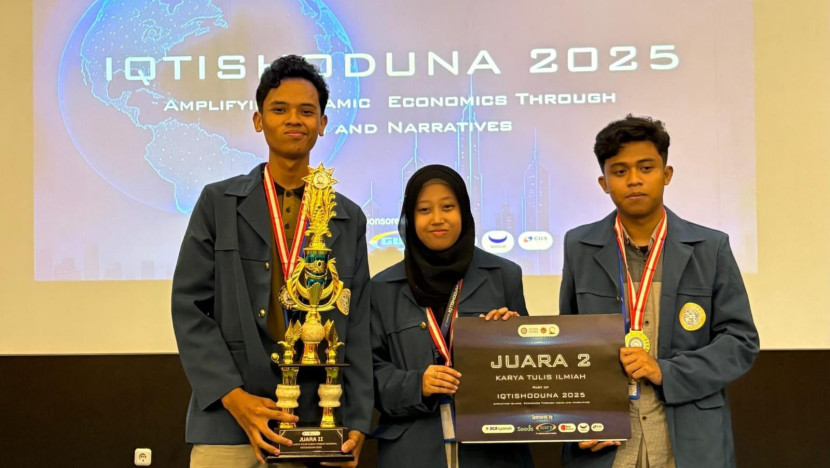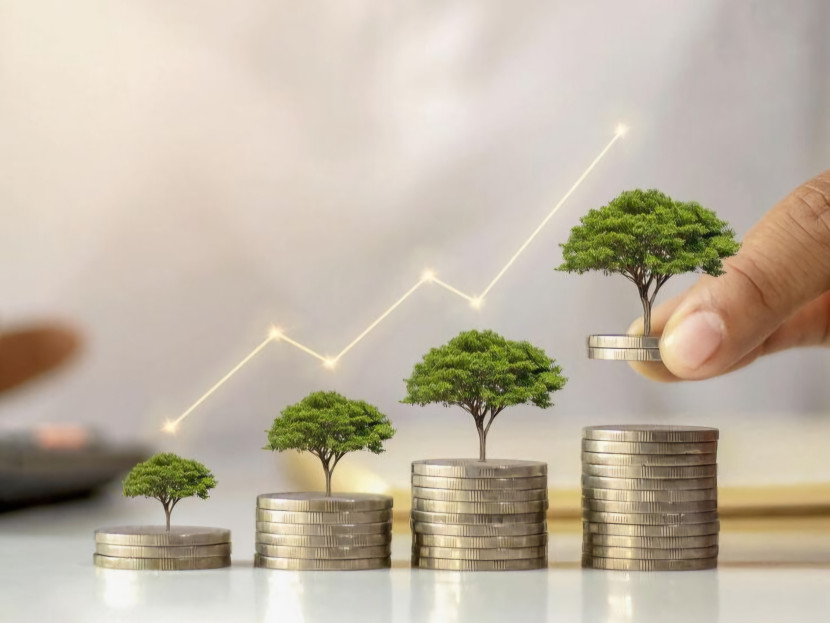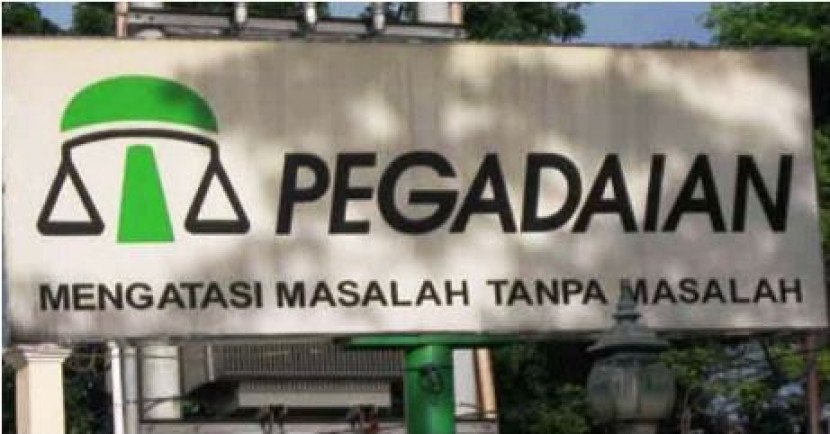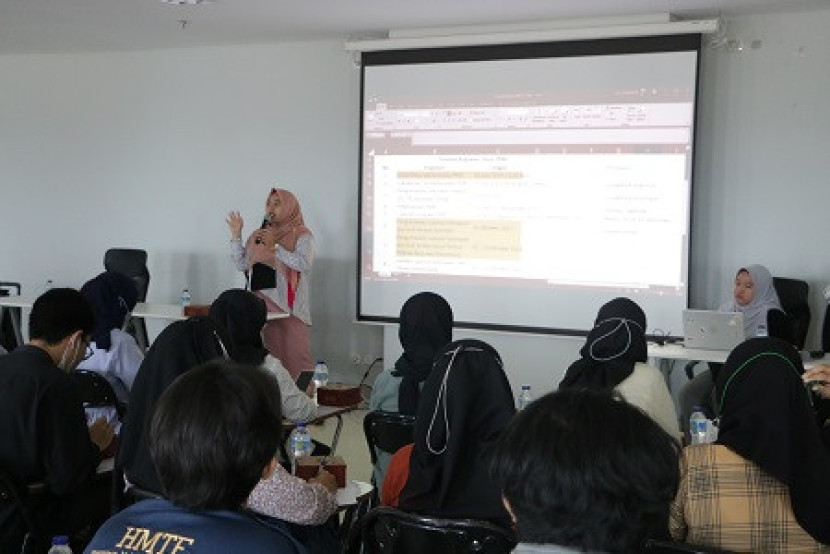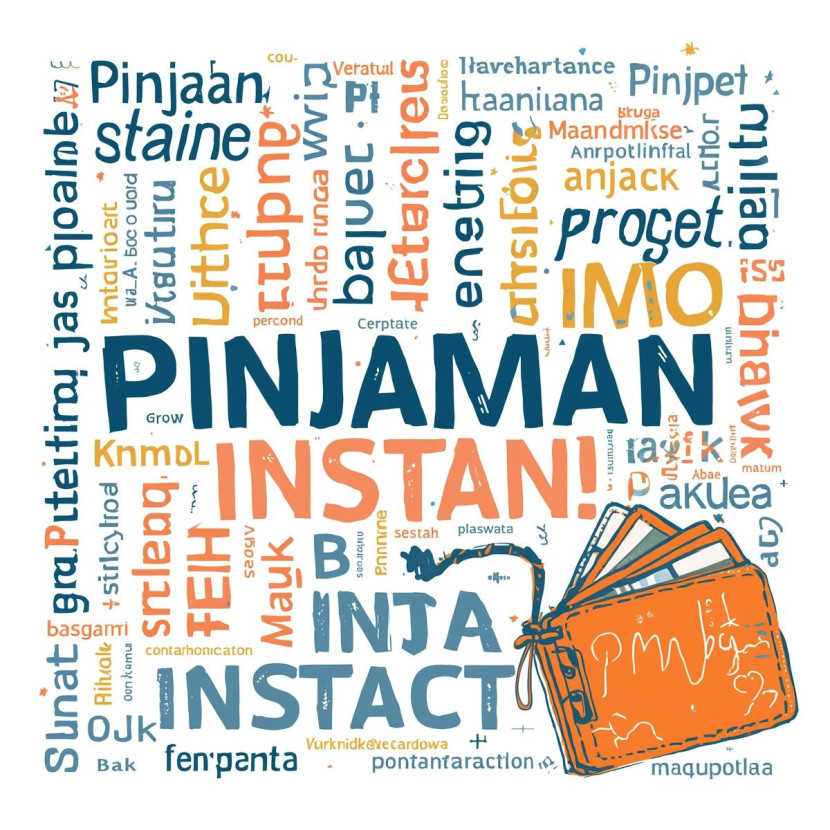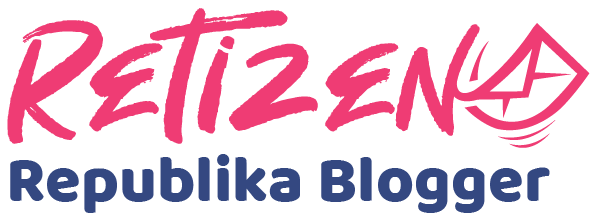 Aditya Idris
Aditya Idris
The Halal Revolution: Shaping a Sustainable Economic Future
Lomba | 2023-11-12 15:23:26
Introduction
The Halal industry has become a catalyst for change in the global economic landscape, representing an undeniable force in shaping a sustainable economic future. The development of the Halal industry in Indonesia is one response to the transformation and economic revolution towards sustainability in the new paradigm of Indonesia's current and future industrialization. The Halal industry has entered an era of revolution that goes beyond merely meeting the halal requirements of food and products. The Halal Revolution, as a global phenomenon, is not just a transformation in adherence to halal principles but also a journey towards deep innovation and significant contributions to environmental sustainability.
This revolution not only understands consumer needs but also sees the potential to shape a greener and more sustainable future. In this in-depth report, we will delve deeper into how the Halal revolution has been a pioneer in innovation, creating products and production practices that not only meet halal standards but also have a positive impact on the environment. Focusing on efforts to reduce carbon footprint, improve resource efficiency, and stimulate green innovation, the Halal revolution offers a model that can be followed by other industries striving to embrace sustainability. Let's explore further into the world of innovation and environmental contributions of The Halal Revolution, shaping a new vision for a sustainable economic future.
Rapid Growth and Development of the Halal Industry
Recent data illustrates the rapid growth of the global Halal industry, surpassing the boundaries of conventional economic sectors. The State of the Global Islamic Economy Report for the year 2022 estimates that the total expenditure of the global Muslim population in 2022 will grow by 9.1%. This growth is anticipated to come from six real sectors of the Sharia-compliant economy, namely the halal food and beverage sector, modest fashion, cosmetics, pharmaceuticals, media and recreation, as well as travel.
It is estimated that by 2025, Muslim expenditure will reach USD 2.8 trillion with a Compound Annual Growth Rate (CAGR) of 7.5%. Key drivers include increasing consumer awareness of sustainability and ethics, as well as surging demand, particularly in developing countries. The growth potential of the Halal industry is reinforced by data from the Ministry of Home Affairs, recording a Muslim population in Indonesia of 241.7 million in 2022, equivalent to 89.02% of the country's population.
In Indonesia, the Sharia-compliant economy continues to grow and show promising developments. Bank Indonesia (BI), in its Indonesia Halal Market Reports for 2021/2022, notes the potential contribution of the Sharia economy to be a total of US$5.1 billion to the national GDP through the export of halal products, the growth of foreign direct investment, and import substitution.
The robust growth of the Sharia economy is supported by several key drivers, including the significant Muslim population, increasing awareness of Islamic ethical values related to the consumption of halal and thoyyib products, and the growing number of national strategies and programs dedicated to the development of halal products and services.
The development of the Halal industry in Indonesia has brought significant positive impacts, including aspects reflecting its contribution to social inclusion, job creation, and community empowerment.
With these positive social impacts, the Halal industry in Indonesia serves not only as an economic growth driver but also as a force promoting social inclusion, gender equality, and community empowerment. Therefore, the development of the Halal industry in Indonesia can be seen as a positive effort to achieve sustainable development goals at various societal levels.
Environmental Sustainability in Halal Production
On the journey towards sustainability, the Halal industry not only focuses on the halal aspects of products but also considers the environmental impact of production. Sustainable practices and innovative technologies are pivotal in preserving ecosystems and reducing carbon footprint. Environmental sustainability in Halal production in Indonesia is an increasingly important aspect receiving attention. Several sustainable initiatives and practices have been implemented to reduce negative environmental impacts while ensuring that Halal products are produced ethically and environmentally friendly. Some actions taken regarding environmental sustainability in Halal production in Indonesia include waste and production residue management, the use of renewable energy, sustainable agriculture and animal husbandry, the use of eco-friendly materials, green technology in production processes, water and resource conservation, and stakeholder engagement and awareness.
Through these initiatives, the Halal industry in Indonesia aims to build an environmentally friendly production model, contribute to global sustainability, and create Halal products that are more environmentally responsible. With increasing awareness and commitment, the hope is that this industry will be a pioneer in promoting sustainable practices in other industrial sectors in Indonesia.
Role of Regulation and Certification
Regulation and certification play a key role in ensuring the quality and integrity of Halal products. How these institutions adapt to global challenges and maintain halal standards is a crucial focus in achieving a sustainable economy. The Halal industry has been a breeding ground for product innovation, offering solutions for a health-conscious and sustainable-aware society. Regulations and certifications in the Halal industry play a vital role in supporting a sustainable economy. They create a framework leading to more sustainable production practices, ensuring product integrity, and instilling consumer confidence. Steps that can be taken include measuring product quality and integrity, promoting sustainable production practices, harmonizing international standards, monitoring and law enforcement, providing consumer certainty, driving innovation and product quality, and opportunities for industry training and development and encouraging corporate social responsibility.
Thus, regulations and certifications in the Halal industry not only support product halalness but also serve as essential tools for creating a sustainable, environmentally friendly, and socially responsible economy. This involves active participation from the government, certification bodies, producers, and consumers to ensure ongoing sustainability.
The Future of the Halal Industry and Global Challenges
The Halal industry can continue to thrive amid global dynamics and shape a sustainable economic future by adopting strategies and principles that consider global challenges and opportunities. Some steps that can be taken to support sustainable growth in the Halal industry include global collaboration and strategic partnerships, adaptation to global consumer trends, the implementation of digital technology, innovative product development, consumer awareness and education, participation in international forums and conferences, empowerment of local communities, sustainability in environmental management, advancements in research and innovation, transparency, and corporate responsibility.
Through these steps, the Halal industry can remain competitive and relevant in the global market while supporting sustainable economic growth and contributing to the Halal revolution that shapes a better and sustainable future.
In conclusion, this article summarizes findings and highlights future challenges. How the Halal industry can continue to thrive amid global dynamics and how we can ensure that the Halal revolution continues to shape a sustainable economic future. This article depicts "The Halal Revolution" as not only a rapidly growing economic engine but also laying a solid foundation for sustainability. This revolution not only changes how we do business but also brings significant changes at the social and environmental levels. With ongoing innovation and a commitment to sustainability, the future of the economy seems to be characterized by a sustainable Halal footprint.
Disclaimer
Retizen adalah Blog Republika Netizen untuk menyampaikan gagasan, informasi, dan pemikiran terkait berbagai hal. Semua pengisi Blog Retizen atau Retizener bertanggung jawab penuh atas isi, foto, gambar, video, dan grafik yang dibuat dan dipublished di Blog Retizen. Retizener dalam menulis konten harus memenuhi kaidah dan hukum yang berlaku (UU Pers, UU ITE, dan KUHP). Konten yang ditulis juga harus memenuhi prinsip Jurnalistik meliputi faktual, valid, verifikasi, cek dan ricek serta kredibel.

